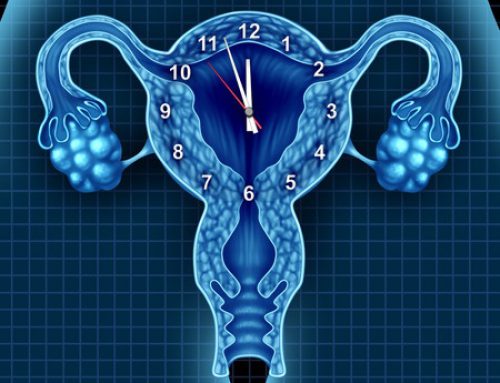 Many people assume that once you are pregnant it is time to start taking care of your body. However, in my Naturopathic medicine practice, treatment goals include augmenting the health of the child-to-be through preconception care in addition to prenatal care. Preconception care focuses on the health of the female and male counterpart while prenatal care focuses on the health of the female and fetus, once conception has occurred. This is an important topic because the nutrient status, stress level and exposure to toxins during the preconception and prenatal period impact the health of the baby well into their adult life. The lifestyle of the parents influences the lifetime health of the baby. Assessing lifestyle factors such as sleep, nutrition, exercise, stress management and environmental exposures helps to form the treatment plan to optimize these goals.
Many people assume that once you are pregnant it is time to start taking care of your body. However, in my Naturopathic medicine practice, treatment goals include augmenting the health of the child-to-be through preconception care in addition to prenatal care. Preconception care focuses on the health of the female and male counterpart while prenatal care focuses on the health of the female and fetus, once conception has occurred. This is an important topic because the nutrient status, stress level and exposure to toxins during the preconception and prenatal period impact the health of the baby well into their adult life. The lifestyle of the parents influences the lifetime health of the baby. Assessing lifestyle factors such as sleep, nutrition, exercise, stress management and environmental exposures helps to form the treatment plan to optimize these goals.
The four-month period leading up to conception is especially important because this is when the eggs and sperm are maturing. For the woman, this is known as folliculogenesis. During this time, a few primordial follicles (soon-to-be eggs) progress from a small size to a slightly larger, pre-ovulatory size. This four-month period is a crucial window especially for women who have been given the not-so-welcome phrase “advanced maternal age.” This time period is when the health of the follicles can be influenced, increasing the likelihood of chromosomal normalcy and a lasting, healthy pregnancy. Similarly, the male sperm are also influenced during this four-month stage.
If you plan to conceive, focus on these areas to improve egg and sperm health:
#1: Follow an anti-inflammatory diet.
Nutrition forms the foundation of many treatments, and fertility is no exception. Eat a diet rich in organic fruits and vegetables, legumes, nuts, seeds, healthy fats, cold-water fish and pure, filtered water. If you consume meat, of course find the healthiest (wild, organic, grass-fed) sources available. The purpose is to lower overall inflammation, which trickles down to improved health in all the organs.
#2: Maintain a healthy weight.
Being overweight can be a factor is several causes of female infertility such as PCOS and Hypothyroidism. A healthy weight sets the stage for a healthy pregnancy. Gestational Diabetes is much less likely to occur if glucose levels are healthy and balanced before pregnancy occurs.
#3: Take a prenatal vitamin.
When a couple is trying to conceive (ttc), I recommend basic supplementation, and of course this includes a prenatal vitamin. It’s very important that a prenatal vitamin have Calcium, Iron and Zinc. Adequate levels of vitamin D, which are really important for the uterine lining and the immune system, are also key! Vitamin A levels should be much lower than they are in regular multivitamins. Finally, folic acid in the methylated form, methylfolate, is a must.
#4: Pop a probiotic.
Probiotics are known to be great for digestive health, but they also have a huge impact on the immune system. The balanced immune system is essential for a pregnant woman. From the body’s immune perspective, the growing fetus is a foreign object, so it’s important that the immune system be balanced so that it can identify foreign proteins in the growing fetus and know to leave them alone. Otherwise, if there is an autoimmune tendency, it can cause problems in the pregnancy including miscarriage. Certain strains of probiotics are known to decrease the likelihood of Gestational Diabetes in the pregnant woman. Probiotics are also beneficial when the baby is born. Ideally the baby is born vaginally and they get a huge inoculation of the mother’s vaginal flora, which becomes a part of their immune system (passive immunity). However, even if they are born via C-section, the breastfed baby is still going to get their mother’s beneficial flora because the mother’s dendritic cells actually deliver this essential flora from the mother’s gut to the breast milk. Isn’t that amazing. Dendritic cells are cool! Healthy gut flora in the baby through probiotics can really help reduce the likelihood of having a colicky baby or any of the atopic conditions that are common with babies, toddlers and children such as eczema, allergies and asthma. This is why probiotics are high on my list of essential supplements.
#5: Consume healthy fats.
Essential fatty acids are an important part of preconception care for both the male and the female counterparts – and for the female during the prenatal period. I like to see patients take 2000 milligrams per day of EPA and DHA in a combined, 3:2 ratio. Once the pregnant woman is halfway through the second trimester it’s important to switch to an essential fatty acid supplement that has a higher ratio of DHA to EPA, because the extra DHA is really important for the developing brain.
All of the suggestions mentioned above set the stage for a healthy pregnancy, which really impacts the lifetime health of the individual. What an important step to take for an unborn child! Have you tried any of the preconception or prenatal health practices above? Share your experience in the comments section below.







